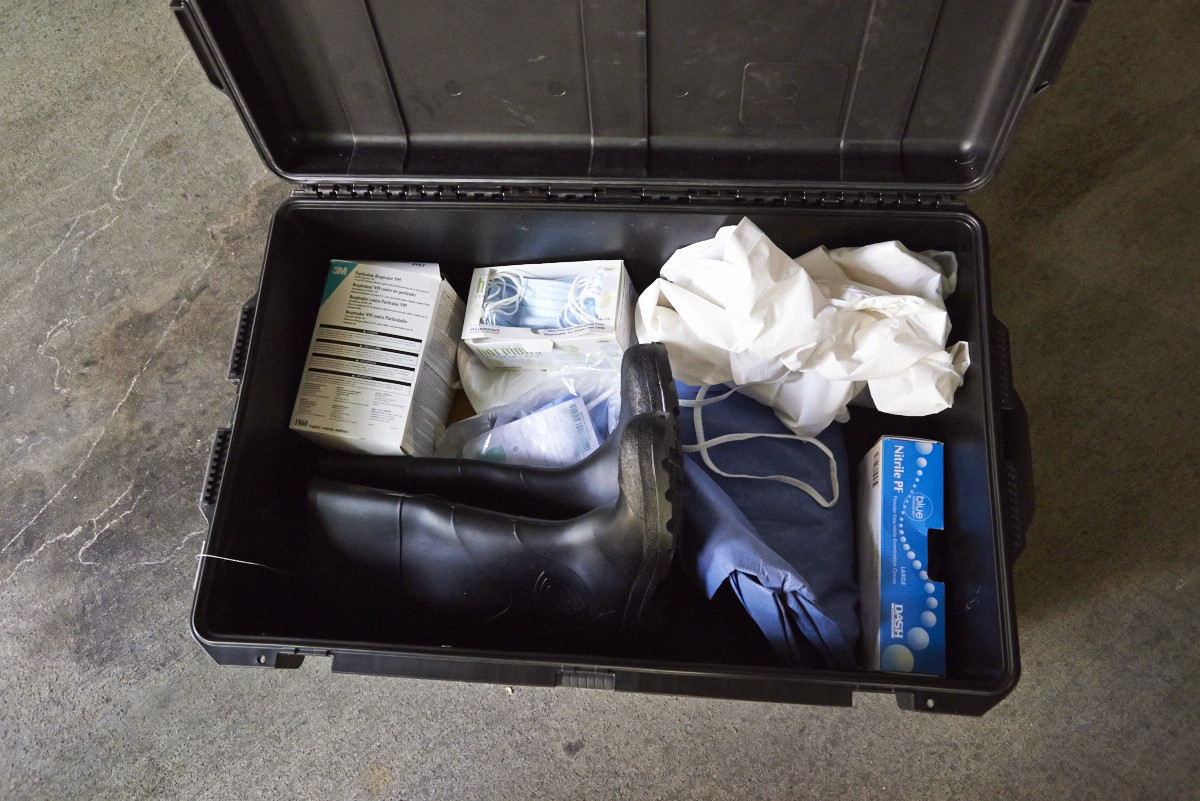This morning, Rebecca Merrill will be deploying from the U.S. to Liberia. She is one of the more than 50 disease specialists being sent to West Africa by the Centers for Disease Control and Prevention (CDC) to help slow the spread of Ebola, a virus that has claimed 961 lives so far—and nearly 300 of those were in Liberia alone.
“Fear is extremely natural, but the bigger picture is that there needs to be support there,” says Merrill, an Epidemic Intelligence Service (EIS) officer at the CDC. “When the opportunity came up, I thought, there’s no way I could avoid applying.”
When TIME met with her a couple of days before her deployment, she told us what she’d be packing, and showed us her pelican case full of gear. Items on the list include GPS systems—both for their own navigation and so that their colleagues at the CDC can track them—radio equipment for public health messaging, a bug hut for sleeping outside if need be, a satellite phone, granola bars, comfortable clothes, and protective equipment like gloves, masks, boots, hats and eye protection. She’ll be gone for 29 days.

It’s Merrill’s first time deploying, and though her husband is worried and she’s glad her kids are too young to understand, she says this is what she signed up for. “My husband understands that I applied for this job in order to have this kind of opportunity,” says Merrill. “So whether [my family] is scared or not, no one is letting me know that. It’s all support at this point.”
The EIS is a two-year program that trains doctors and other health professionals in skills they need to investigate infectious disease outbreaks and epidemics. The program began in 1951, in response to biological warfare threats during the Korean War. It’s a highly selective program, with 50% of those selected being doctors, and the rest veterinarians, nurses and pharmacists. Four of the last seven CDC directors were EIS officers.
EIS officers are deployed based on their expertise, and based on need. Dr. Meredith Dixon, for instance, who just returned from Guinea, spent two 30-day deployments doing data input for a pathogens team in Guéckédou, the epicenter of the outbreak. Kelsey Mirkovic, spent her days tracking down Ebola patient contacts by knocking on doors of people who may have come in direct contact with confirmed Ebola patients. Merrill, who served in the Peace Corp and has a PhD in maternal and child nutrition, will help train health care workers and community members, and even write newspaper articles about how to contain Ebola.
Evidently, though EIS agents like Merrill are trying to neutralize a very dangerous disease, there’s excitement and motivation to go into the region many others want to steer clear from. “I just want to get there at this point,” says Merrill. “I hope I can do as I much as I want in 29 days.”
More Must-Reads from TIME
- Donald Trump Is TIME's 2024 Person of the Year
- Why We Chose Trump as Person of the Year
- Is Intermittent Fasting Good or Bad for You?
- The 100 Must-Read Books of 2024
- The 20 Best Christmas TV Episodes
- Column: If Optimism Feels Ridiculous Now, Try Hope
- The Future of Climate Action Is Trade Policy
- Merle Bombardieri Is Helping People Make the Baby Decision
Contact us at letters@time.com